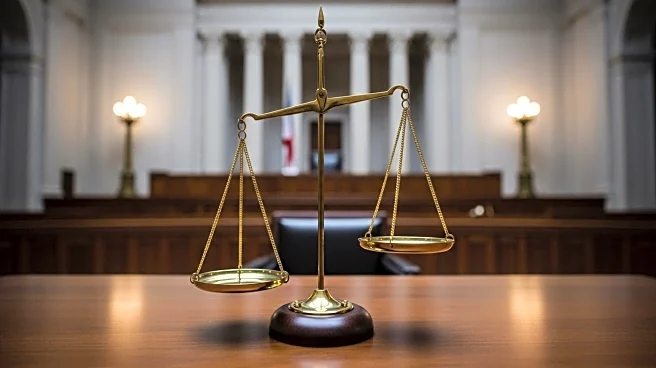What is the story about?
What's Happening?
The Supreme Court's three liberal justices, Justices Ketanji Brown Jackson, Sonia Sotomayor, and Elena Kagan, are showing differing approaches in their dissents on the court's emergency docket, also known as the 'shadow docket.' While they often align on major cases, their strategies diverge when critiquing their conservative colleagues' decisions. Justice Kagan tends to reserve her dissents for cases where she believes the majority disregards precedent, while Justices Jackson and Sotomayor have been more vocal in their criticisms. This divergence highlights the varying degrees of assertiveness among the liberal justices in addressing the court's conservative majority.
Why It's Important?
The differing approaches among the liberal justices could influence the court's dynamics and public perception. Their critiques of the emergency docket, which often involves decisions made without full briefing or oral arguments, underscore concerns about transparency and accountability in the court's decision-making process. These dissents may pressure the court to reconsider its handling of emergency cases, potentially leading to procedural reforms. The liberal justices' strategies also reflect broader debates about the role of the judiciary in checking executive power, particularly in cases involving the Trump administration.
What's Next?
As the Supreme Court begins its new term, it remains to be seen whether the liberal justices' critiques will lead to changes in how the court handles its emergency docket. The court's conservative majority may continue to dominate decisions, but the liberal justices' dissenting opinions could shape future legal arguments and public discourse. Observers will be watching to see if the court addresses the concerns raised by the liberal justices and whether any procedural reforms are implemented.















